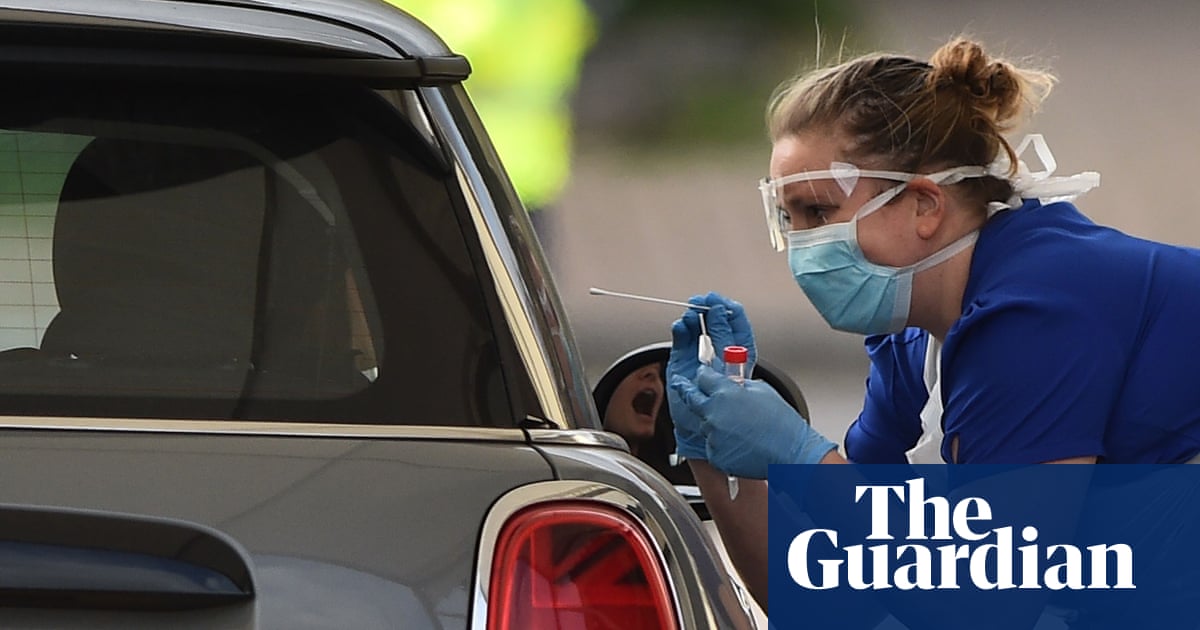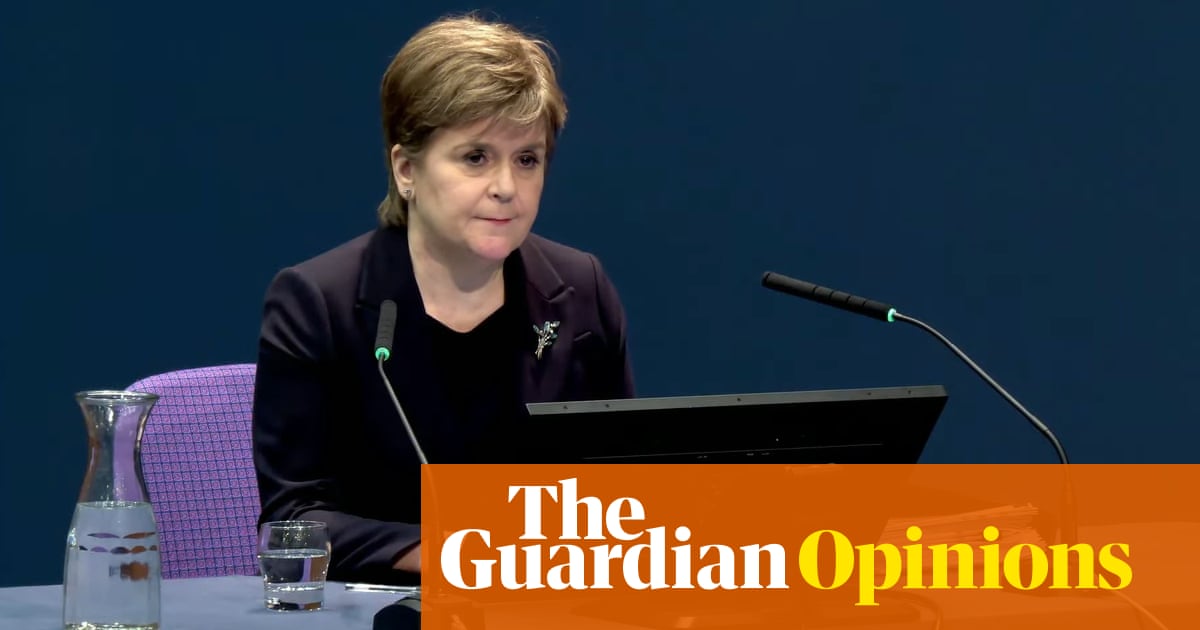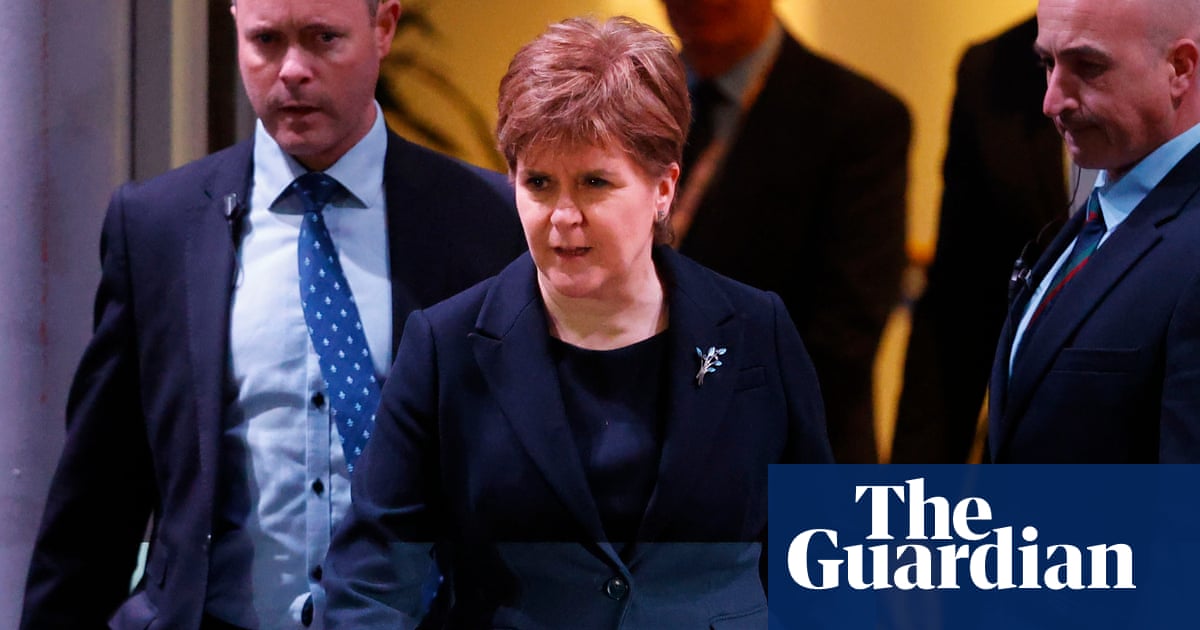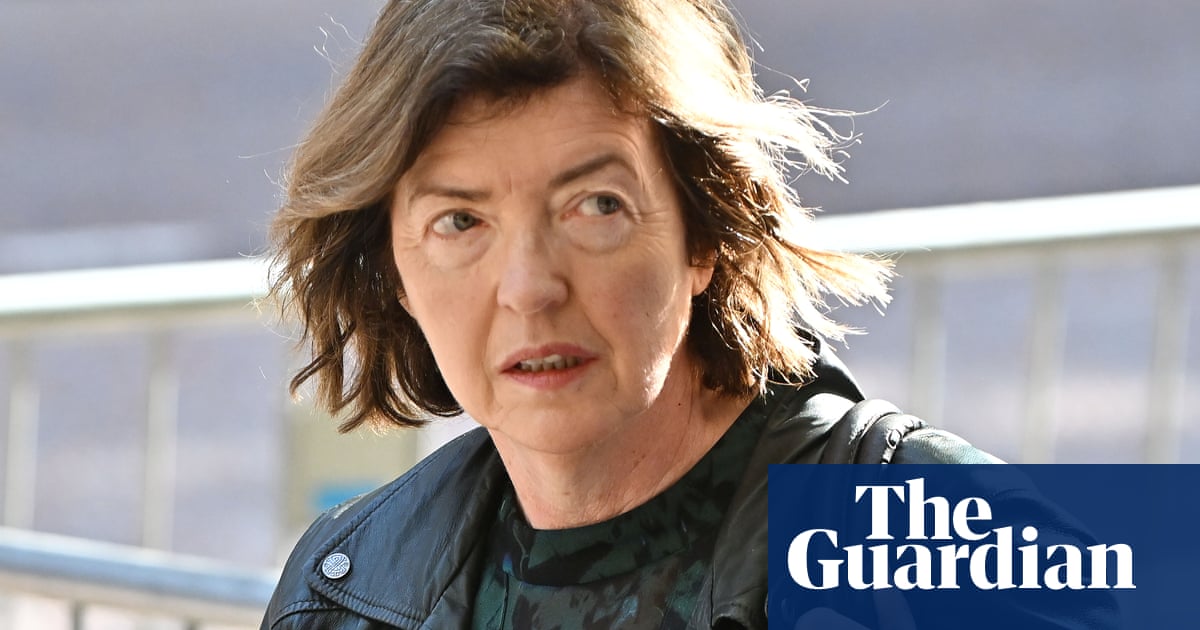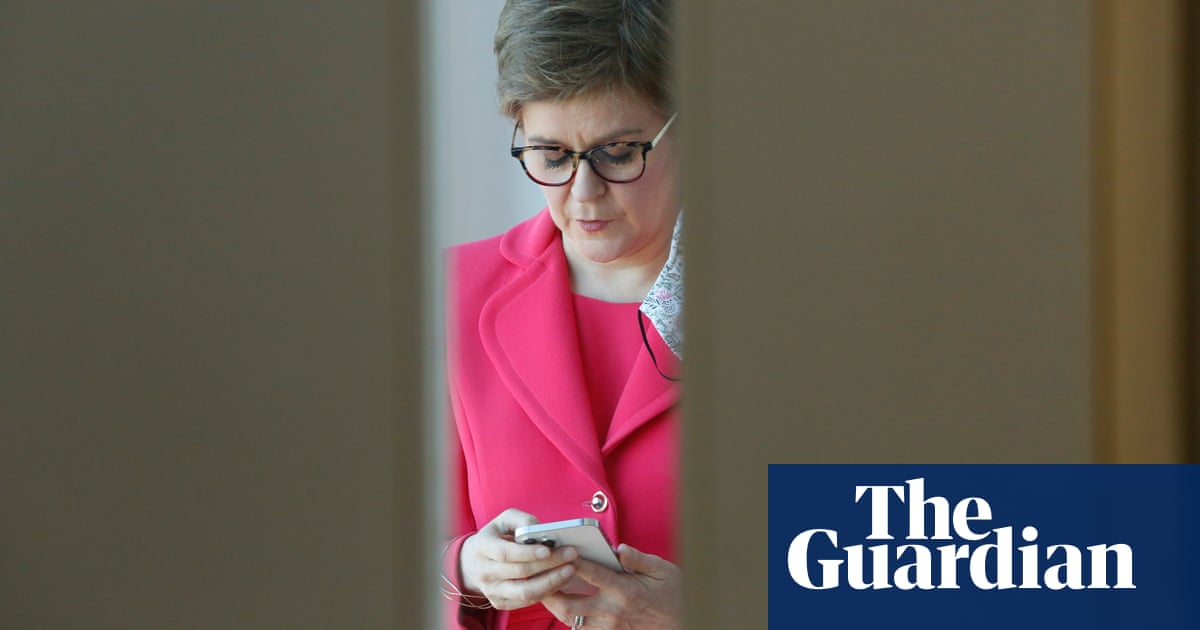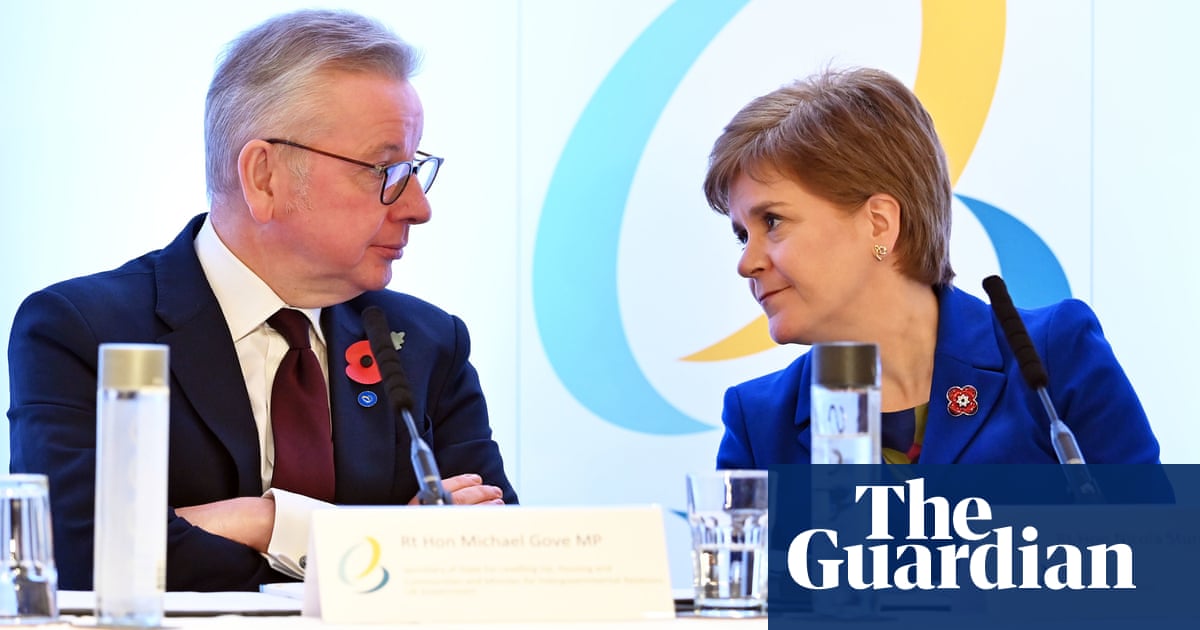
Nicola Sturgeon broke confidentiality and “jumped the gun” when she announced a ban on mass gatherings in Scotland before other parts of the UK agreed to the move during the pandemic, the UK Covid inquiry has heard.
The then first minister announced on 12 March 2020 that the Scottish government would ban any gatherings of 500 people or more the following week, before that decision had been agreed at a Cobra meeting called later that day to discuss the crisis.
Michael Gove, the then UK cabinet minister, said that caused “discomfort” and “disquiet” in Whitehall. It led Boris Johnson, then prime minister, other cabinet ministers and senior civil servants to question whether Sturgeon could be trusted.
Gove, who was the minister responsible for coordinating the UK’s devolved administrations, said that while Sturgeon had “jumped the gun”, he was not inclined to believe that she was acting maliciously or for political gain.
While Sturgeon had not told the UK government she planned to announce it that day, she had indicated that she wanted to shut down large gatherings.
“My approach generally was not to allow moments of irritation, or disappointment, to curdle,” Gove told Jamie Dawson KC, the inquiry’s counsel. He wanted to prioritise “effective working in future”, he said.
Heather Hallett, the inquiry’s chair, intervened and said to Gove: “Some might think that’s being rather generous.
“It wasn’t just that the then first minister announced a decision about mass gatherings in Scotland, it was a breach of confidentiality. You as a longstanding, very experienced government minister, know the importance of confidentiality to government decision-making.”
The inquiry on Monday examined extracts from a confidential Cabinet Office memo prepared for that Cobra meeting, which took place two weeks before the UK went into lockdown. It said a final decision on banning mass gatherings would be taken across the UK only after the UK’s four chief medical officers had given their advice.
Hallett added later that Sturgeon was not bound by the ministerial code for UK ministers attending Cobra meetings. Gove said that even so, devolved government ministers should still “at the very least” wait until the decision had been agreed by everyone.
Sturgeon is due to give evidence to the inquiry later this week and is expected to be asked about the incident, which fuelled long-running tensions between the two governments throughout the crisis.
The inquiry heard that earlier that day, the prime minister’s then adviser, Dominic Cummings, had told Johnson by text not to have “meetings with the [devolved administrations] on the fucking phone all the time either so people can’t tell you the truth”.
Cummings urged Johnson to have his daily briefings in the cabinet room at No 10, which were private, rather than at much larger Cobra meetings, which included all the devolved administrations and officials and ministers from across Whitehall.
Gove told the inquiry this was because cabinet room meetings were confidential, which allowed Johnson to test ideas with his advisers privately.
Last Thursday, the inquiry looked at an exchange between Sturgeon and her then chief of staff, Liz Lloyd, in which the first minister described Johnson as a “fucking clown”. Sturgeon added: “His utter incompetence in every sense is now offending me on behalf of politicians everywhere.”
Dawson said Scottish ministers were angry about a proposal in May 2020 from Johnson to dilute the stay-at-home lockdown policy. Sturgeon felt she was being coerced into that move, with which she disagreed. Lloyd described a Cobra meeting at which that was discussed as “a shambles”.
Gove said he believed Sturgeon and her ministers acted professionally and in the public interest for the vast majority of the time during the pandemic. Even so, it would be “naive” to believe she did not exploit occasional opportunities to promote Scottish independence.
Giving evidence later to the inquiry, Jeane Freeman, Scotland’s health secretary in 2020, admitted that the government’s understanding of the level of readiness of Scotland’s care homes for the pandemic was “not adequate from the outset”.
She said she regretted that. Around half of all Scotland’s Covid deaths during the first wave took place in care homes; in the early part of the crisis, ministers failed to order hospitals to test elderly patients for Covid before being discharged.
“I regret very much and will do for the rest of my life any deaths that occurred [in the care sector] because of action that the Scottish government didn’t take, or did take but could have done better,” she told the hearing.




